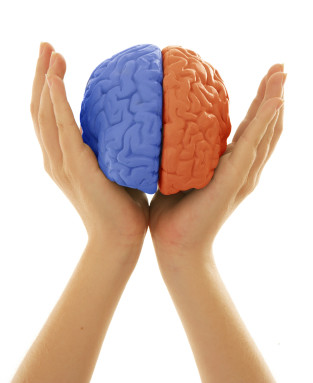
Alcohol & Your Brain
Alcohol has a variety of effects on the brain and neurological function – some that are immediately obvious and others that develop subtly over time. The more often a person drinks and the more they drink, the greater the short and long-term impacts of drinking will be. Many alcohol rehab centers in Orange County are experienced in treating both the long and short-term impacts of alcohol abuse. The services that are offered can help both men and women with alcohol addiction.
Slurred speech, blurred vision, loss of memory, and reaction time issues are some of the more obvious and immediate impacts of alcohol. Longer-term affects of heavy drinking can include serious memory issues and long-term motor skills impairment. Each alcoholic will be different, and they will exhibit differing challenges related to alcohol abuse.

Everyone Is Different
There are a variety of factors that will impact how alcohol affects the brain, such as:
- Frequency of drinking
- How long a person has been drinking
- Age at which drinking began – Brains exposed to alcohol at younger age suffer more severe impacts because the brain is still developing at this time.
- Genetics, education, social background – Predispositions to certain health conditions can cause drinking to have a more serious long-term impact on the brain.
- Pre-natal exposure to alcohol
- Overall health
While some longtime drinkers who enter Orange County treatment centers have few lingering impacts after getting sober, others will face a lifetime of challenges related to their alcohol abuse, even after they attain sobriety. Knowing more about alcohol’s impact on the brain will help recovering alcoholics better understand alcohol’s impact on their lives – both before and after sobriety. It may also serve as a wake-up call to alcoholics who may be in denial about their need for treatment.
Alcohol’s Impact on Areas of the Brain
The brain is highly complex, and different parts of the brain perform different functions. Alcohol impacts various areas of the brain in a myriad of ways, but the overall cumulative effect of longtime, heavy drinking is overwhelmingly negative. Consider the different areas of the brain and alcohol’s impact on each:
- Cerebral Cortex – The cerebral cortex is the part of the brain responsible for thoughts and perception. Most of the information relayed to the brain is processed in this area. Alcohol slows down the flow of information to the cerebral cortex.
- Corpus Callosum – The corpus callosum is a group of fibers in the core of the brain that connects the brain’s left and right hemispheres. The corpus callosum allows these two sections of the brain to communicate with one another. Alcohol abuse can shrink the corpus callosum. This can cause problems with attention span, problem solving skills, and storing and retrieving knowledge.
- Cerebellum – The cerebellum plays an important role in regulating movement and balance. Alcohol affects the cerebellum, causing people to have problems with balance and difficulties in walking.
- Hypothalamus & Pituitary – These parts of the brain regulate automatic functions of the body and the release of hormones. Alcohol impacts these parts of the brain chiefly by depressing sexual performance and increasing the need to urinate.
- Medulla – This part of the brain controls automatic functions like breathing, body temperature, and much more. Alcohol impacts the medulla chiefly by making drinkers sleepy, slowing their breathing, and lowering their body temperature.
Long Term Impact of Alcohol on the Brain

Long-term abuse of alcohol can have some severe consequences for alcoholics. Prolonged alcohol abuse can cause lesions on the brain, impacting various functions. Thinking and reasoning can be gravely impacted by long-term alcohol abuse, as can impulse control. Ironically, these are exactly the functions of the brain the alcoholic needs most to maintain sobriety.
Alcoholics who drink for decades also often experience problems with memory and motor skills, even if they stop drinking. The physical damage to the brain caused by longtime, frequent exposure to alcohol makes it tougher for them to have proper coordination and remember things.
Alcoholics who began drinking at an early age may face some significant hurdles, as it is likely that alcohol damaged their developing brains. Researchers have found that alcoholics who started as teens may have an elevated risk of having problems with learning and memory, as well as increased difficulty making life decisions.
While some of the long-term impacts of alcoholism will subside when the addict reaches and maintains sobriety, others are here to stay. The longer the alcoholic drinks, the more likely it is he or she will have lingering ill effects from drinking after sobriety.
Getting treatment will help alcoholics get control of their lives and begin dealing with the long-term damage alcohol may have caused. Treatment specialists can suggest a number of methods to deal with the long-term impacts of alcoholism, including medical interventions. Rehab centers can help California residents deal with the long-term effects of alcohol abuse, not only by getting them sober, but also by getting them functional.
Sources:
https://health.usnews.com/health-news/family-health/brain-and-behavior/articles/2011/09/15/problem-drinking-linked-to-brain-damage
https://www.cdc.gov/alcohol/faqs.htm
https://www.psychologytoday.com/us/blog/think-well/201201/how-know-if-you-have-drinking-problem
https://science.howstuffworks.com/life/inside-the-mind/human-brain/alcoholism4.htm








